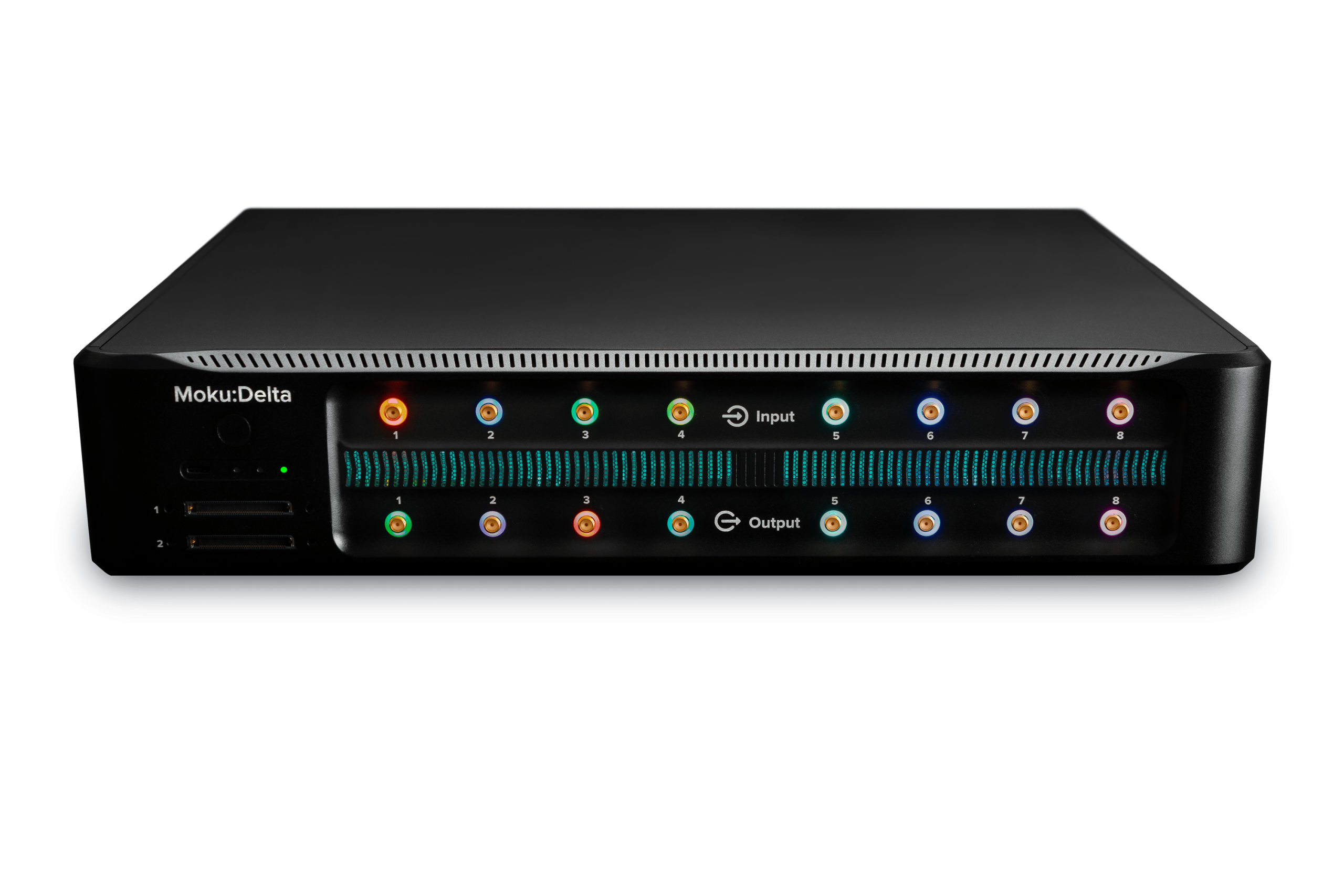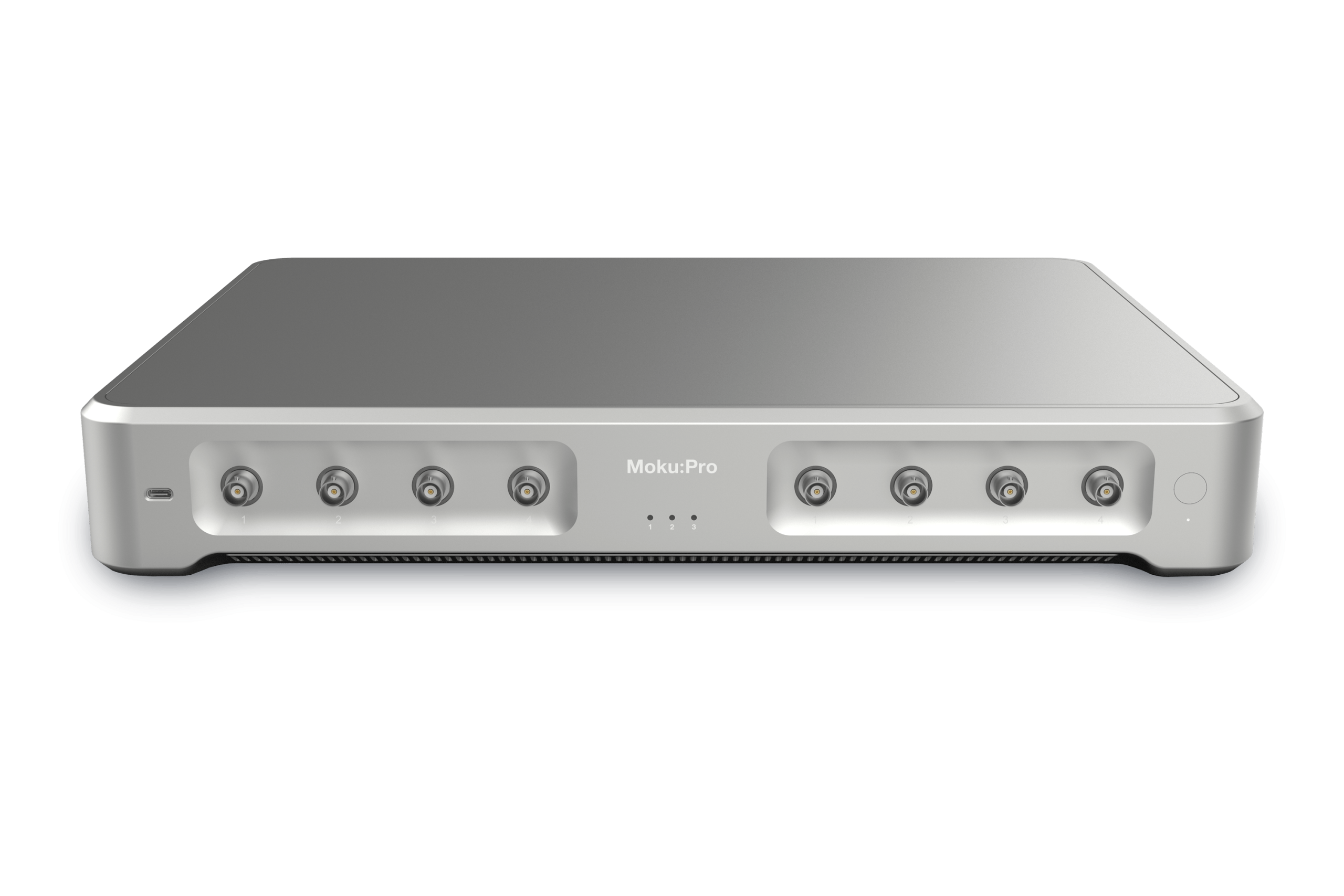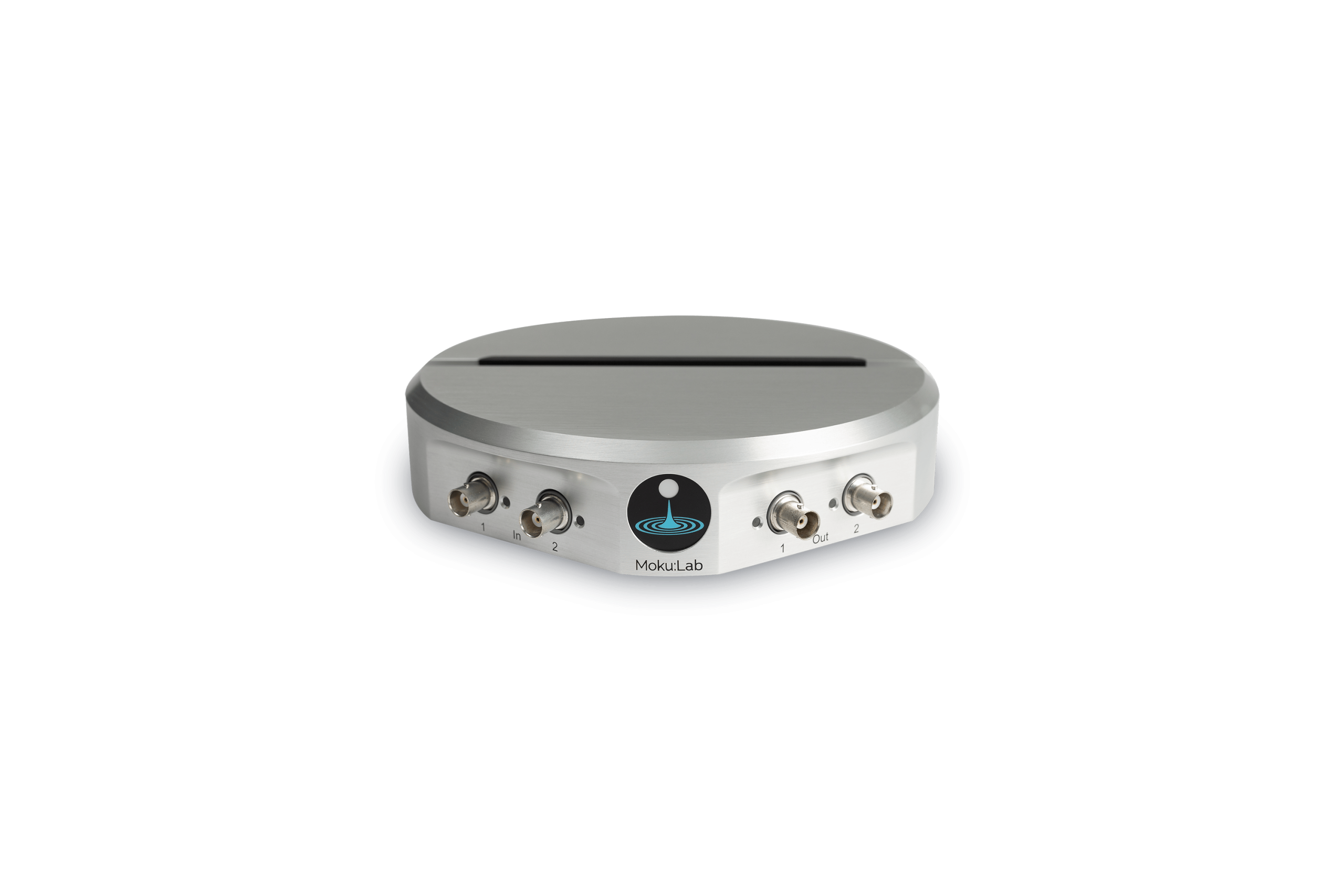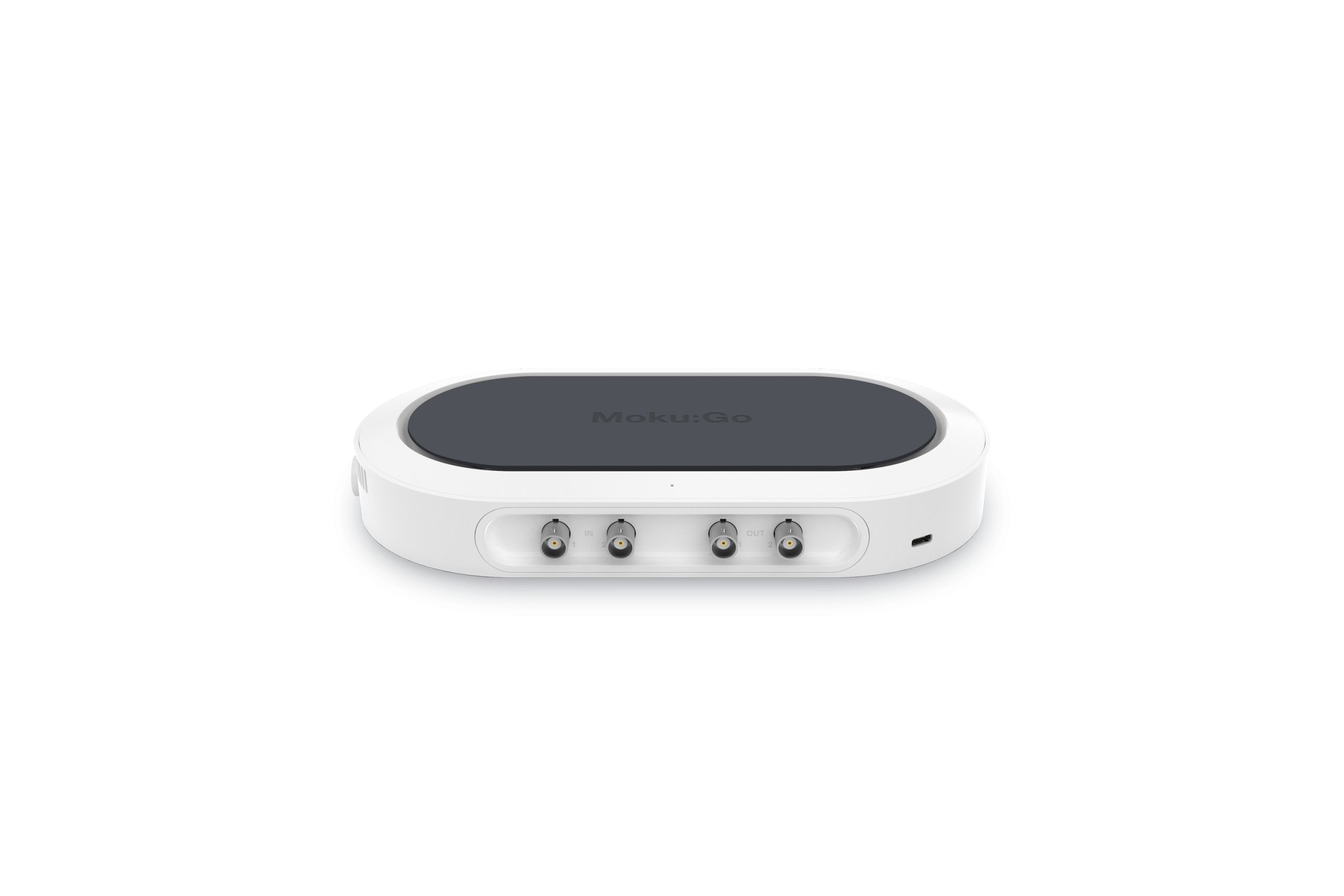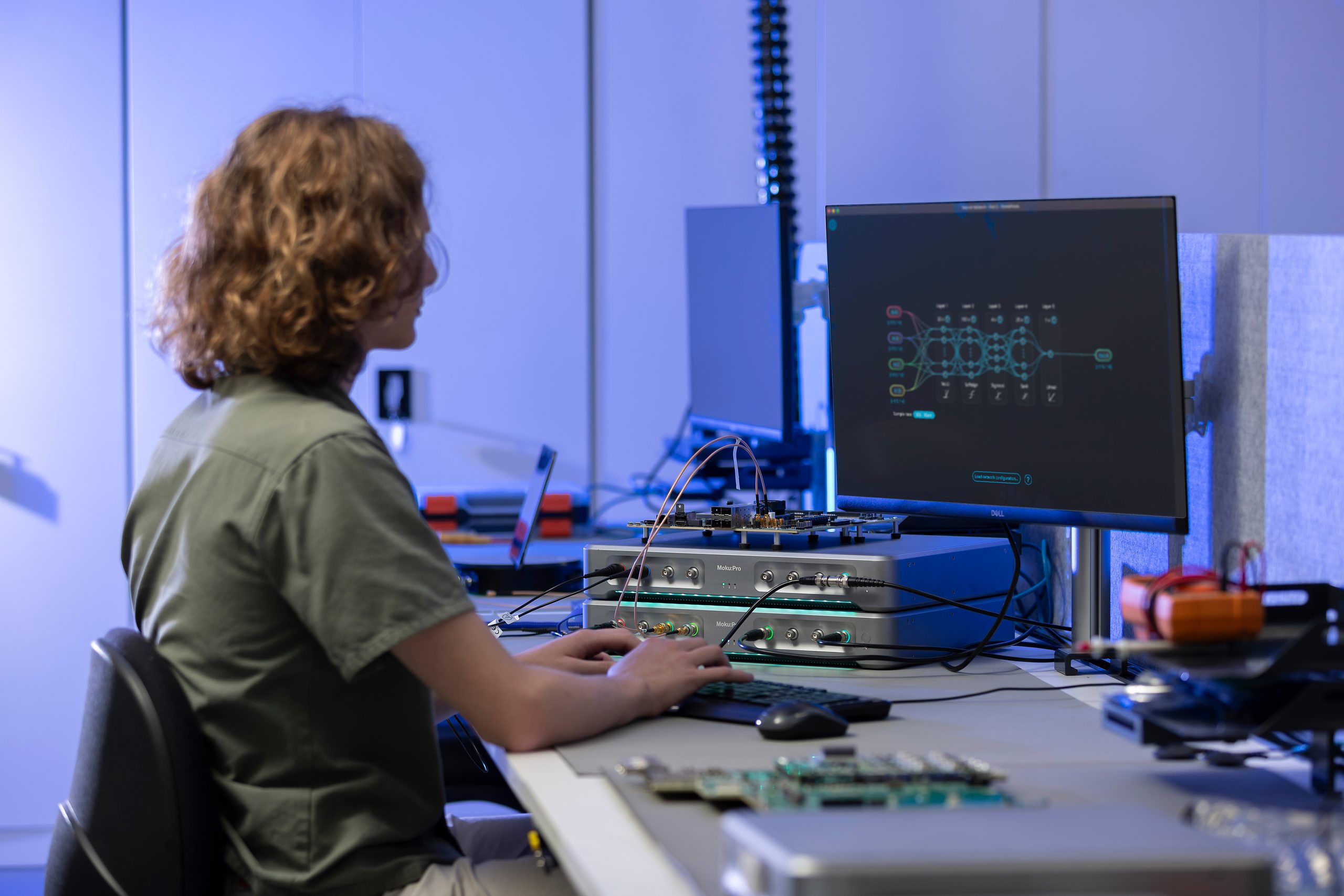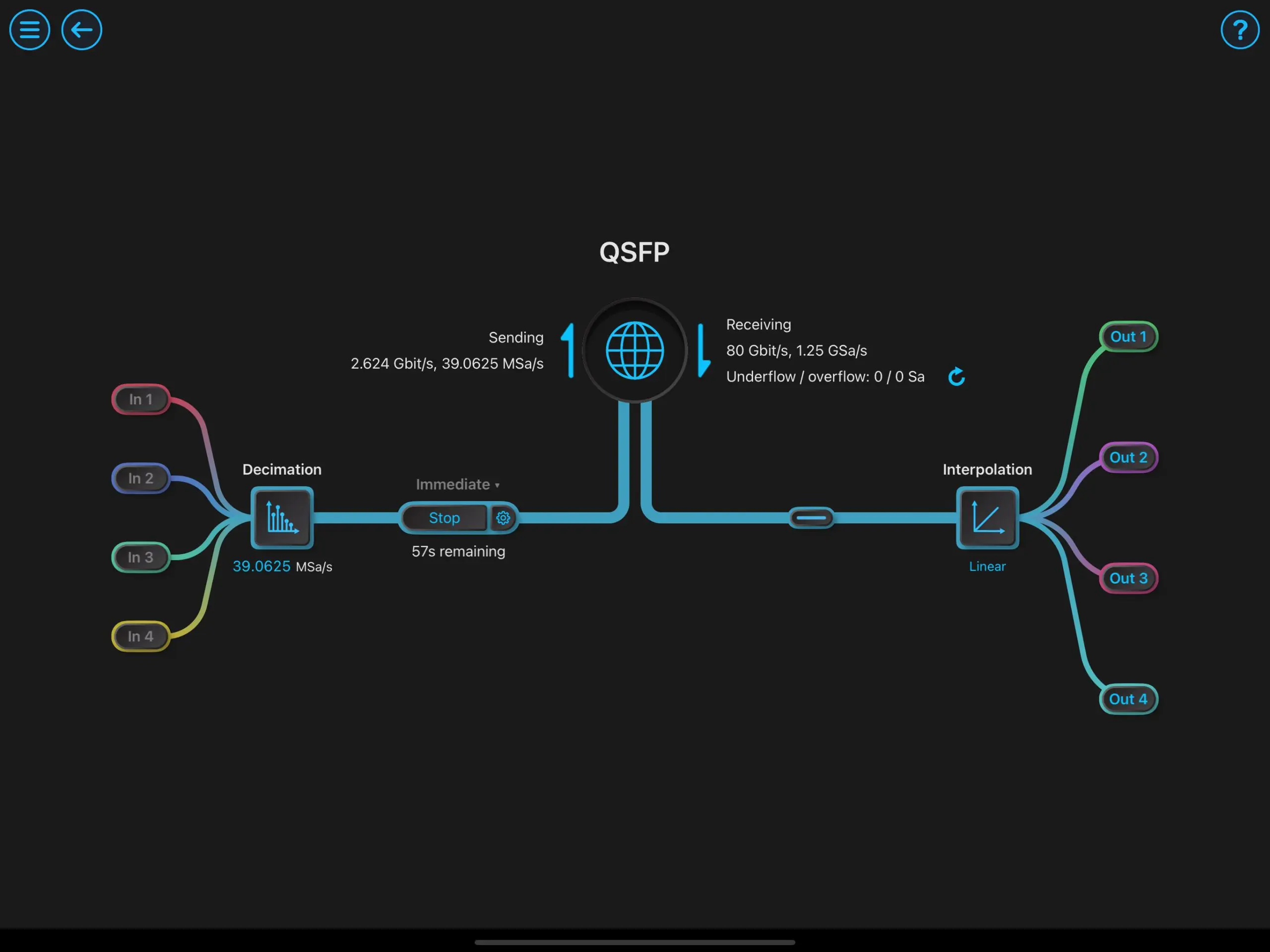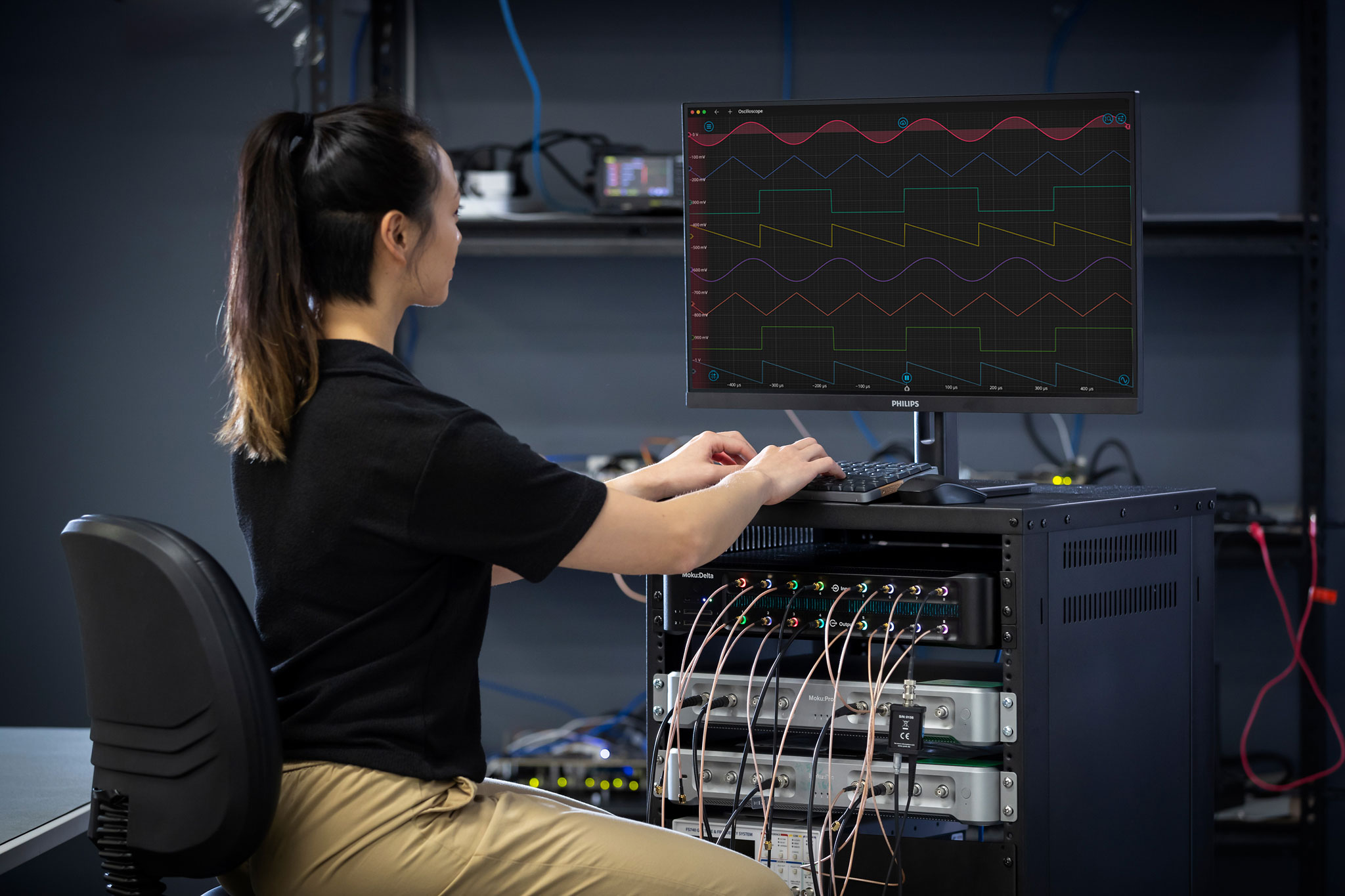MokuOS 4.0 brings new instrument features, updated APIs, and a brand new Moku Cloud Compile experience to all Moku:Pro, Moku:Go, and Moku:Lab users. This new operating system also includes full software support for Moku:Delta, our new flagship 2 GHz, 8-channel device. Download MokuOS here to try it for free.
A brand new Multi-Instrument Mode
MokuOS 4.0 upgrades Multi-Instrument Mode with a redesigned user interface, updated routing and signal bus configuration, and 8-slot mode for Moku:Delta. Moku:Delta allows the FPGA to be partitioned into more slots than ever to create a fully synchronized, integrated test system, replacing an entire rack of equipment with a single device. Alternatively, users can opt to use 3 slots at full speed to run sophisticated multi-instrument test setups at peak performance.
For example, users can build:
- Advanced lock-in detection experiments with three independent 2 GHz Lock-in Amplifiers
- Stimulus and response measurements in the time and frequency domain simultaneously
- Optimized qubit drive and readout pulse generation on multiple channels
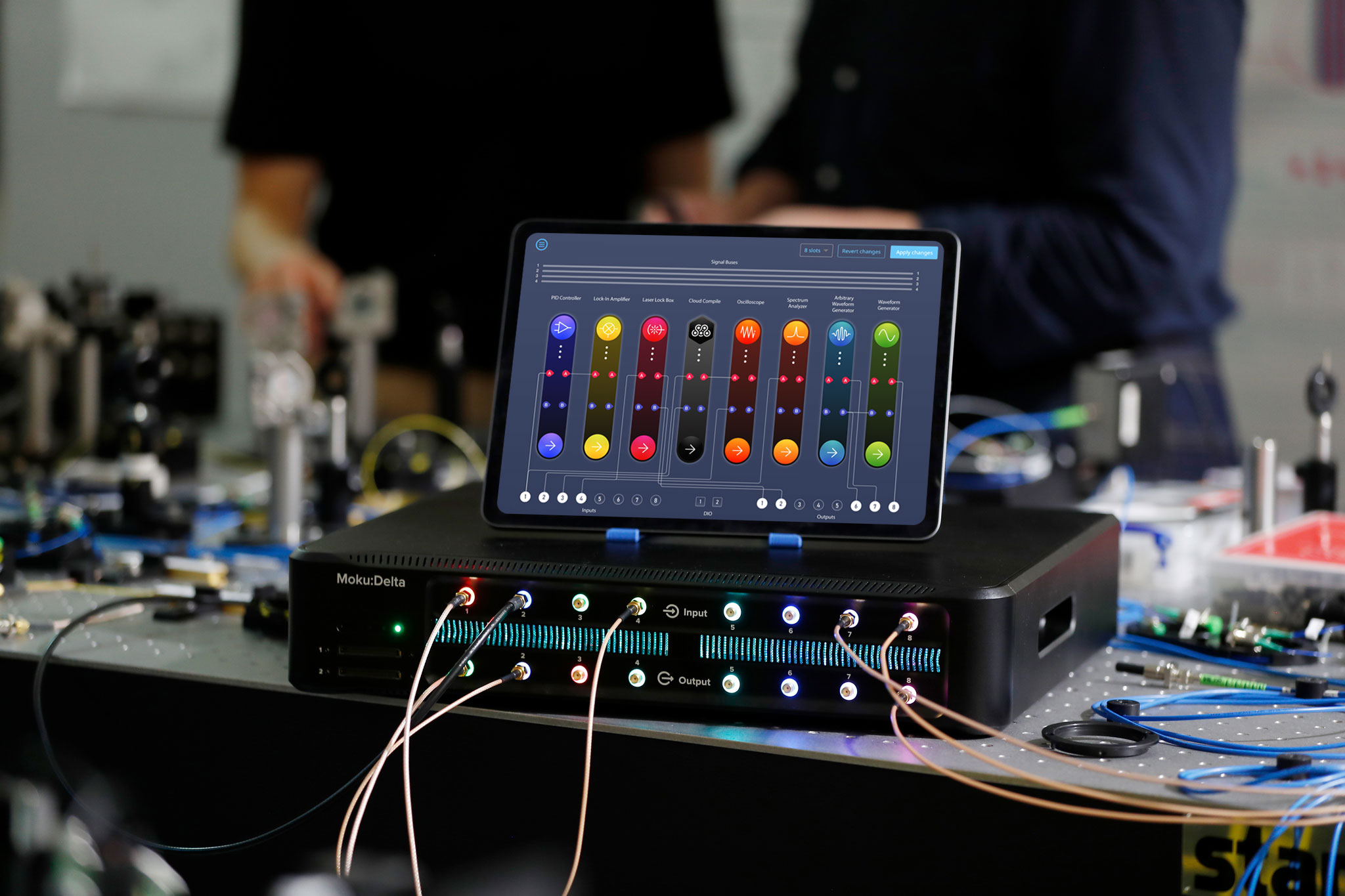
Better stability with blended clocking
Moku:Delta features a blended timing architecture that combines the long-term stability of an oven-controlled crystal oscillator (OCXO) with the fast response and tunability of a voltage-controlled crystal oscillator (VCXO). This hybrid approach delivers excellent frequency and phase stability across a wide bandwidth. Users can also lock to an external 10 MHz or 100 MHz reference, or take advantage of an optional GNSS module for global synchronization. The clock blending configuration is accessible from the instrument selection screen in the Moku UI, and is seen below.
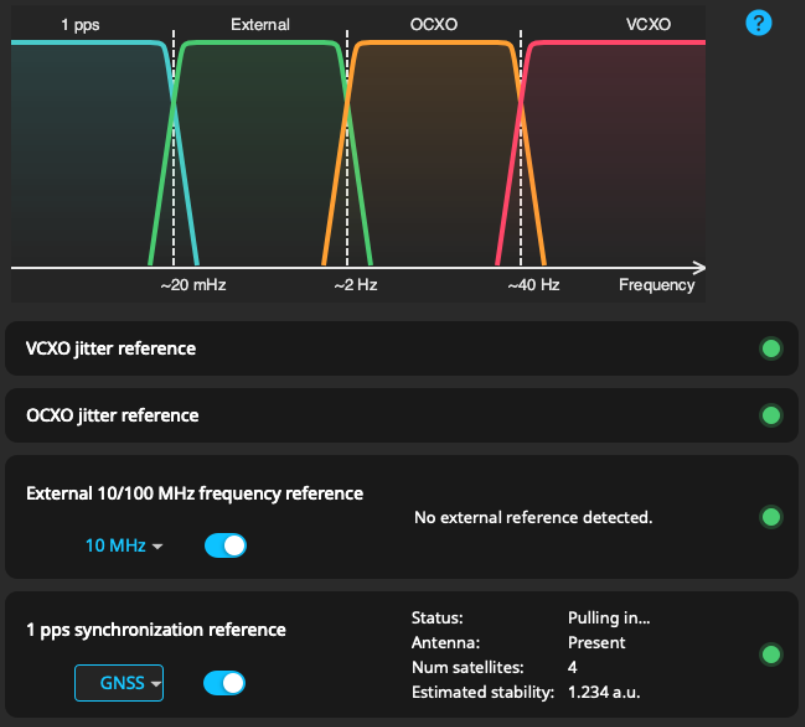
New capabilities across Moku devices
New functionality has been added to other Moku instruments as well. Moku Cloud Compile 4.0 brings an updated user experience to all Moku devices and adds Moku:Delta support for user-programmable feature development. If you’re looking for the legacy Moku Cloud Compile for previous firmware versions, you can find it here.
The Moku Oscilloscope now features additional triggering options, while the Waveform Generator and Arbitrary Waveform Generator now allow for manual triggering, enabling better waveform control for applications such as qubit drive and readout pulse generation.
For a full walkthrough of what’s new, schedule a demo with one of our engineers.
